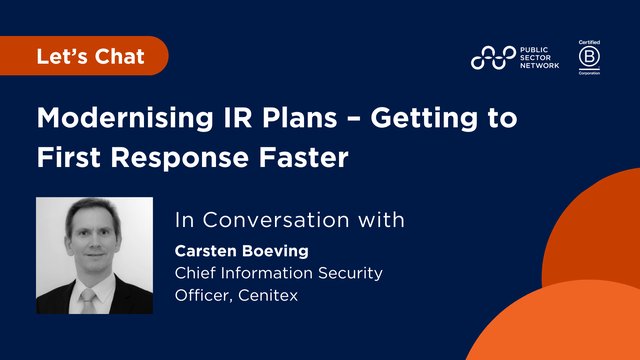

Seven Challenges and Opportunities for New Zealand's Security Leaders
Governments worldwide have embraced technology to streamline services, enhance citizen engagement, and improve administrative efficiency. Aotearoa has long benefited from our remoteness and small population in terms of the relative ease of scaling in our ability to be early adopters of modern technologies.
New Zealand first trialed the global payment solution known as SWIFT in 1982. The pioneer electronic financial transaction payment solution that Kiwi's know as EFTPOS, was first introduced in 1984. The use of EFTPOS spread rapidly in the 1990s once there was a critical mass of both cards and machines. By 1997 EFTPOS had become the dominant form of payment in New Zealand.
By contrast, the introduction of the revolutionary "Chip and PIN" payment card to a population of 56M more citizens (than New Zealand's test run on a comparatively tiny population of 3.247M in 1985) was understandably such a major challenge for the United Kingdom, that the British government waited twenty years to roll-out similar technology to the wider population, Chip and PIN was first introduced in 2004 and wasn't widely used until 2006.
In 2023's digital era, transformation has given rise to a new set of challenges concerning cybersecurity. As government agencies increasingly handle vast amounts of sensitive data, the need to develop robust data governance and digital identity capabilities has become paramount.
Key Challenges for Cyber Security and ICT Leaders
Proliferation of Data Breaches: The expansion of digital services and the accumulation of citizen data create attractive targets for cybercriminals. Data breaches in government systems can lead to severe consequences, including identity theft, financial fraud, and reputational damage for both citizens and government agencies.
Privacy Concerns: With increased data collection and processing, concerns over citizens' privacy and the potential misuse of personal information have escalated. Our government must strike a delicate balance between leveraging data for public benefit while safeguarding individual privacy rights.
Complex Regulatory Landscape: Governments worldwide face a challenging landscape of evolving cybersecurity regulations and compliance requirements. Adhering to various data protection laws while maintaining operational efficiency is a delicate balance. New Zealand's government must forge a bold new path whilst determining how we should regulate and safeguard our use of constantly evolving technologies.
Opportunities
Strengthened Data Governance: Implementing robust data governance frameworks enables governments to establish clear policies, procedures, and accountability measures for data handling. By effectively managing data access, storage, and sharing, agencies can minimise the risk of unauthorised access.
Enhanced Digital Identity Solutions: Adopting cutting-edge digital identity technologies, such as biometrics, multi-factor authentication, and blockchain-based systems, can fortify security measures. Secure digital identity systems not only improve user authentication but also facilitate secure data sharing across government departments.
Interagency Collaboration: Emphasising collaboration and information sharing among government agencies can enhance collective cybersecurity capabilities. A unified approach to data governance and digital identity allows for better threat intelligence sharing and quicker responses to cyber incidents.
Investing in Cybersecurity Training: Developing the skills of government employees is crucial to staying ahead of cyber threats. Continuous cybersecurity training and awareness programs can empower the workforce to identify and mitigate potential risks effectively.
As our public sector continues to embrace digitalisation, the importance of responsible, secure data governance and digital identity cannot be overstated. The emerging cybersecurity challenges demand proactive measures to safeguard citizen data and government assets.
By investing in robust data governance, implementing advanced digital identity solutions, fostering interagency collaboration, and prioritising cybersecurity training, our government agencies can position Aotearoa at the forefront of cybersecurity resilience. Effectively navigating these challenges will not only enhance public trust in government services but also pave the way for a safer and more secure digital future.
Cyber security and ICT senior leaders and executives, don't forget to SAVE THE DATE of the 9th of November in your diary. Register your team's attendance now, registration is complimentary for members of the public sector: don't miss the opportunity to attend Cyber New Zealand Showcase 2023, network with peers and hear exclusive use-case studies and keynote presentations from our speaker faculty of cyber thought-leaders.
Chief Information Security Officer Jay Harris will share an exclusive insight into how the Department of Inland Revenue are navigating emerging complex network security challenges related to the public sector's push towards building the capability required for secure information sharing. Cross-agency collaboration is being enabled by exciting new advances in digital identity innovation: solutions that are rapidly transforming citizen experience and standards of service delivery. With new digital opportunities, inevitably comes serious risk and critical challenges for cyber leadership in government.
Attend the Cyber New Zealand Showcase in 2023 to chart your security roadmap and find the safest path forward in unknown territories, safeguarding Aotearoa from evolving threats in a brave new world of Cyber.

































